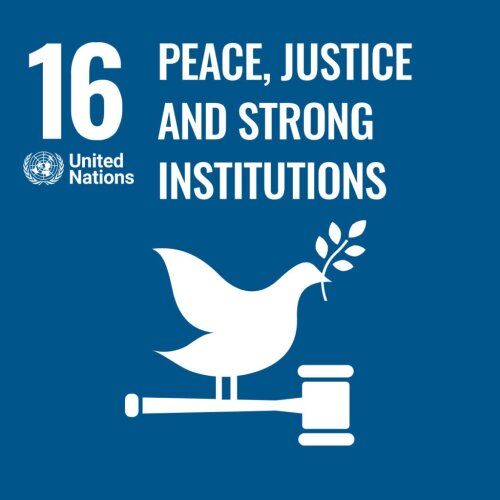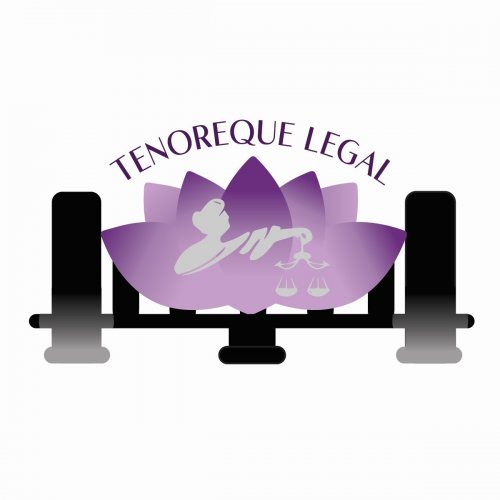Best Faith-Based Law Lawyers in Trinidad and Tobago
Share your needs with us, get contacted by law firms.
Free. Takes 2 min.
Or refine your search by selecting a city:
List of the best lawyers in Trinidad and Tobago
About Faith-Based Law in Trinidad and Tobago
Faith-Based Law in Trinidad and Tobago encompasses legal issues and frameworks arising from religious doctrines and practices. Given the country’s diverse religious landscape, the law often interacts with various belief systems, including Christianity, Hinduism, Islam, and others. Faith-Based Law includes matters such as marriages, inheritances, personal status laws, and more, recognizing the importance of religious traditions while navigating the secular legal framework of Trinidad and Tobago.
Why You May Need a Lawyer
There are several circumstances under which individuals might seek legal advice concerning Faith-Based Law in Trinidad and Tobago, such as:
- Religious Marriage and Divorce: Navigating the legal requirements and rights under both secular and religious laws.
- Inheritance and Wills: Understanding the application of religious principles in matters of inheritance.
- Religious Discrimination: Addressing issues of discrimination in workplaces or elsewhere based on religious beliefs.
- Faith-Based Education: Legal questions concerning religious teachings and schools.
- Freedom of Religion: Addressing challenges to the practice and expression of one's faith under national law.
Local Laws Overview
In Trinidad and Tobago, the intersection of faith and law is nuanced. The Constitution guarantees freedom of religion; however, the application of religious laws must align with the secular legal system. Key aspects include:
- The Marriage Act, which recognizes religious ceremonies under specific conditions.
- The Hindu Marriage Act and Muslim Marriage and Divorce Act, which cater to the personal laws of those groups.
- The Wills and Probate Act, addressing how religious beliefs can influence inheritance.
- Laws governing equal opportunity and non-discrimination, crucial for maintaining religious harmony.
Frequently Asked Questions
What is Faith-Based Law?
Faith-Based Law refers to legal considerations and structures influenced by religious beliefs and practices, covering areas like marriage, inheritance, and personal matters.
Does Faith-Based Law override secular laws in Trinidad and Tobago?
No, while Faith-Based Law can inform certain legal decisions, secular laws and the national Constitution take precedence in legal matters.
Can I choose which legal system my marriage falls under?
Yes, individuals can select a religious or civil legal framework for marriage, provided they meet the requirements outlined in the country's laws.
How are religious divorces handled?
Religious divorces are recognized, but individuals must also undergo civil proceedings to ensure legal acknowledgement.
Can my faith affect my will?
Yes, religious beliefs can influence the distribution of assets, but wills must comply with national probate laws.
What constitutes religious discrimination?
Any unfavorable treatment based on an individual's beliefs, affecting their rights or opportunities, is considered religious discrimination.
Are there legal protections for faith-based schools?
Yes, there are regulations in place to protect faith-based institutions, ensuring they can operate while adhering to national educational standards.
Is it possible to legally contest a religious doctrine or practice?
Legal challenges can be made if a religious practice infringes on constitutional rights or national laws.
How do I file a complaint regarding religious discrimination?
Complaints can be filed with the Equal Opportunity Commission or through legal channels, if necessary.
Are there religious exemptions in national laws?
Yes, in certain scenarios exemptions based on religious grounds may be granted, but these are limited and case-specific.
Additional Resources
For further assistance and information, consider reaching out to the following:
- Ministry of the Attorney General and Legal Affairs
- Equal Opportunity Commission
- Religious Advisory Bodies
- Non-governmental Organizations focusing on human rights and religious freedom
Next Steps
If you require legal assistance in Faith-Based Law, consider the following steps:
- Identify the specific legal issue and gather relevant documentation.
- Consult with a lawyer who specializes in Faith-Based Law or related legal frameworks.
- Explore available mediation or dispute resolution services if appropriate.
- Stay informed about both your religious rights and the national legal requirements.
Understanding the intersections between faith and law can empower you to make informed decisions while respecting both religious and legal obligations.
Lawzana helps you find the best lawyers and law firms in Trinidad and Tobago through a curated and pre-screened list of qualified legal professionals. Our platform offers rankings and detailed profiles of attorneys and law firms, allowing you to compare based on practice areas, including Faith-Based Law, experience, and client feedback.
Each profile includes a description of the firm's areas of practice, client reviews, team members and partners, year of establishment, spoken languages, office locations, contact information, social media presence, and any published articles or resources. Most firms on our platform speak English and are experienced in both local and international legal matters.
Get a quote from top-rated law firms in Trinidad and Tobago — quickly, securely, and without unnecessary hassle.
Disclaimer:
The information provided on this page is for general informational purposes only and does not constitute legal advice. While we strive to ensure the accuracy and relevance of the content, legal information may change over time, and interpretations of the law can vary. You should always consult with a qualified legal professional for advice specific to your situation.
We disclaim all liability for actions taken or not taken based on the content of this page. If you believe any information is incorrect or outdated, please contact us, and we will review and update it where appropriate.
Browse faith-based law law firms by city in Trinidad and Tobago
Refine your search by selecting a city.














